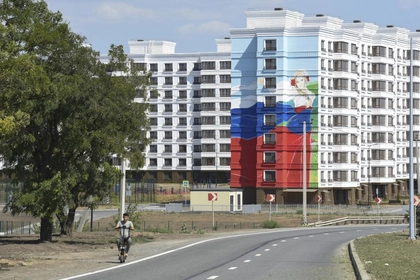Several EU member states called on Tuesday (21 May) for the bloc to start membership negotiations with Ukraine and Moldova by the end of June, but several technical and political obstacles remain for the decision to be taken.
After the EU took the political decision to open accession talks with both Ukraine and Moldova in December, both countries started their respective screening processes to assess which national laws need to be aligned with the bloc’s current legislation, the so-called acquis.
JOIN US ON TELEGRAM
Follow our coverage of the war on the @Kyivpost_official.
But to formally begin the negotiations, EU member states still have to sign off on a formal negotiating framework for the process, proposed by the European Commission in March.
Initially, EU officials had hoped that the first Intergovernmental Conference (IGC) could have been already held shortly after March as the screening process can be carried out in parallel with the first IGC and does not need to be complete to call such a meeting.
Nearly half of the EU’s member states support holding an IGC under the Belgian EU Council presidency, which ends on 30 June, according to internal meeting notes seen by Euractiv earlier this year.
According to EU diplomats, the hope of many was to complete the screening before the Hungarian EU presidency in the second half of this year, to avoid the issue ‘becoming too politicised’ during Budapest’s stint at the EU helm.

IMF Approves $1.1 Billion Loan Disbursement to Ukraine Before Trump Inauguration
Speaking in Brussels, France’s EU Affairs Minister Jean-Noel Barrot called for “the effective opening of negotiations” before Belgium’s rotating presidency concludes at the end of June.
France’s push was echoed by ministers from a number of other EU member states, including Ireland and Sweden.
The latest possible date being floated by the Belgian presidency is now 25 June, two days before the June EU summit, several EU diplomats confirmed.
Should this happen, Kyiv and Chișinău hope to open negotiations on the first so-called ‘negotiation cluster’ on the ‘fundamentals’ chapter – which includes issues related to justice, fundamental rights, rule of law public procurement – in early 2025.
However, the second part of the screening process, where the candidate countries need to present how aligned they are, is very technical and could still take until later this year, EU officials say.
EU diplomats also fear Hungary could potentially stall progress on the accession talks when it takes over the presidency in July.
Budapest has over the past months argued Ukraine was getting preferential treatment despite not meeting the required criteria, including on their bilateral dispute over national minority rights.
Beyond Hungary, Geert Wilders’ new far-right Dutch government could potentially be an obstacle as it is likely to be less enlargement-friendly.
However, starting the negotiations would put Kyiv only at the start of what is likely to be a decade-long process of reforms before it can ultimately become a member.
You can also highlight the text and press Ctrl + Enter






